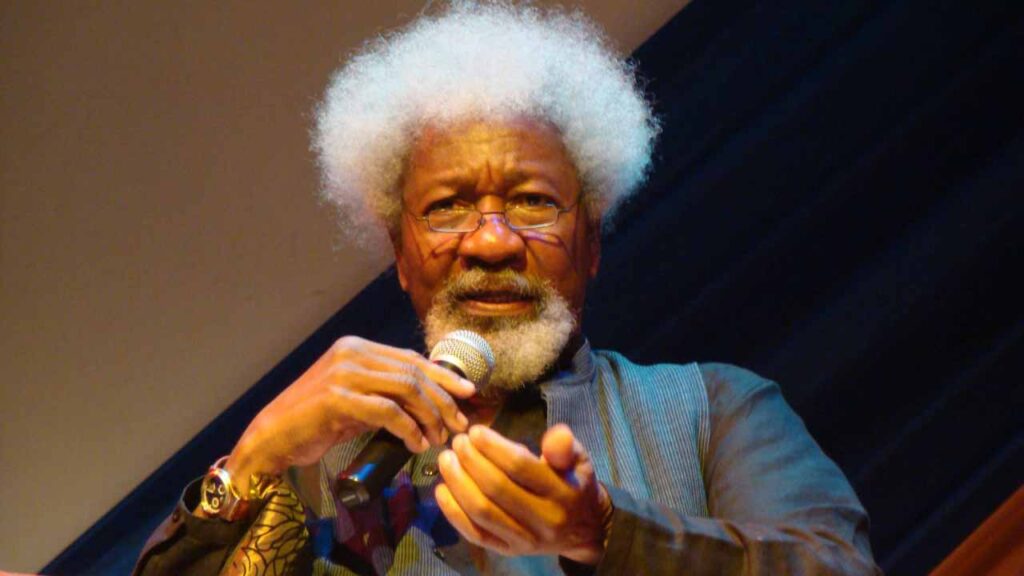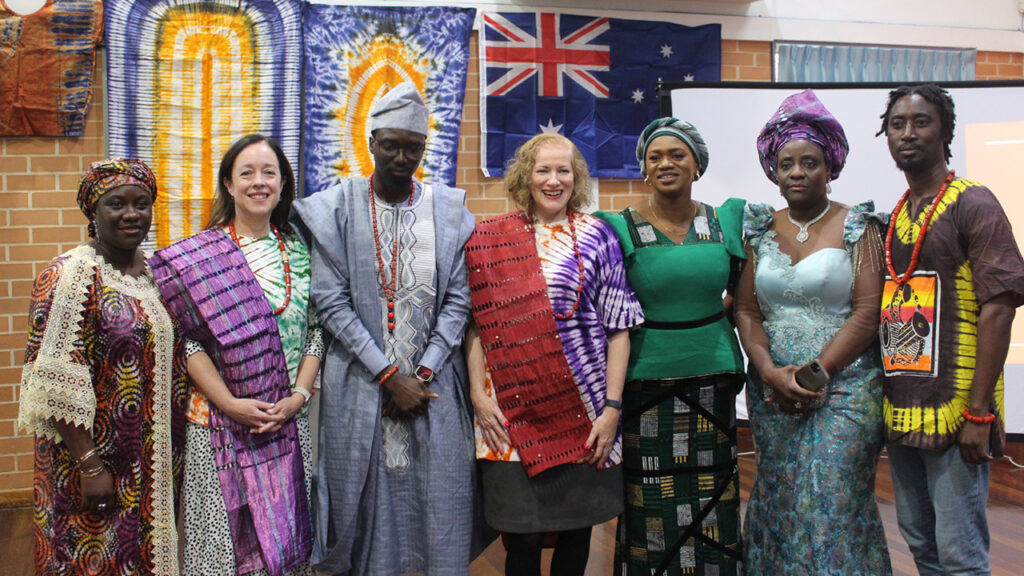
Theatre practitioners in Abuja are expressing their disappointment over the lack of infrastructure in the city. The Cyprian Ekwensi Centre for Arts and Culture performance hall, which is supposed to be the beacon of theatre in Abuja, currently has a rundown appearance that is not befitting of its status.
Unlike their counterparts in Lagos, this issue has become a source of concern for those in the theatre sector in Abuja. Upon reaching the Cyprian Ekwensi Centre, it was observed by The Guardian that the hall, which was apparently not constructed specifically for theatrical purposes, had several issues such as a ripping ceiling, exposed electric wires, insufficient seating, and outdated, faulty mounted lights.
The current situation has compelled theatre professionals to rent expensive privately-owned foyers. The cost of renting a standard hall in Abuja is over N600,000, and it goes up to over a million naira after the removal of fuel subsidy. This high cost of performance halls has a direct impact on ticket prices, which has resulted in a decline in the number of theatre enthusiasts visiting Abuja.
A theatre enthusiast and poet, Christopher Ayanwa, believes that Abuja’s theatre scene falls short of its potential, given its status as a planned city.
According to him, the cost of shows is elitist, it doesn’t cater to the entertainment needs of the common man.
He said: “The hype about Abuja being a well-planned city is ironic, because it is lacking in many things. I’m a creative longing to enjoy theatre performance but there are no centres dedicated to this, in a so-called planned city. The few theatre shows have their ticket for the elite alone. It doesn’t cater for everyone and art isn’t supposed to be for a certain class of people.”
Another art enthusiast, Femi Bedemi, criticised the Art and Culture Department of the Federal Capital Territory for neglecting its primary duties, which he believed led to the lacklustre theatre culture in Abuja.
“It is wild that there is no thriving theatre landscape in Abuja. This is clearly a pitfall in the Arts and Culture Department of the FCTA. Abuja is always lagging behind and it is sad. The administration should become more responsible.”
For Ishaku Aliyu, the right people are not in the right positions to keep the ball rolling. In his words: “The right people are not in place to get theatre shows running as it should. Art is driven by passion, it is only passionate artists that can bring the desired change. We have the National Association of Nigerian Theatre Arts Practitioners and Theatre Arts(NANTAP) and The Motion Pictures Practitioners Association of Nigeria(TAMPAN), professionals, who understand the intricacies they should be consulted and carried along to effect the desired change. Art is the new oil well, the government should be more intentional with it.”
The Creative Director of Bigway Theatre Company and a Senior Lecturer at the University of Abuja, Dr. Awaritoma Agoma, lamented the unfriendly climate of theatre practice in Abuja.
According to him, the Cyprian Ekwensi Centre for Arts and Culture has been hijacked by the political class and used for activities that are not culturally or artistically driven.
“I used to have a relationship with Sheraton Hotel, which is now Abuja Continental Hotel until they changed their management before now, I was charged N600, 000 for one ballroom, but because of my antecedent, I was given a 50 per cent discount. But in October last year, when I did my play, Ikemba, the money doubled to N1.2 million for two ballrooms with a 50 per cent discount. This year, it is now N1.7 million for a single ballroom. The two ballrooms are usually will pay for are now N3.4 million. How many people will come and watch? We peg a ticket for N10,000 and people are shouting, a ballroom has the capacity to carry 600 people when you mount your stage, it reduces the space to carry 500 people, if we pay N3.4 million for only the hall, how do I pay the cast and crew? The majority of the plays I do are traditional plays with a huge cast strength of more than 45, you now see the issues. We don’t get the support.”
There are no theatres in Abuja, apart from Lagos, Abuja is next to nothing. “When The Cyprian Ekwensi Centre was built, we were very happy, I was part of the first artists who performed in that centre in 1992. It was beautiful and convivial, but now it is a mess, it has been turned into a secretariat for other agencies, and the shine of the centre has been defeated. It has been reduced to a wedding hall, and political meeting hall, and the spirit of culture has left that place. If the centre is functional we won’t have to spend so much renting ballrooms.”
Awaritoma advised the government to be open and give room to the private sector.
“The FCTA should be open about what revenues are coming in. They should also carry professionals like us along. The private sector should also come in when the government spares lands in chosen areas in the FCT so we can build purpose-built theatres taking into consideration, theatre acoustics and huge seating capacity. This sector is a huge income-generating sector for the government.”
The Artistic Director of Arojah Royal Theatre, and the Director of Media and Publicity, NANTAP responding to the issues also revealed what the present administration should do when he said: “What the FCT administration under Barrister Nyesom Wike, who is know for his interest and support for culture and creativity should consider doing his to develop a blueprint for the stimulation of the Abuja art scene. Thus far, what we have witnessed are through the efforts of art practitioners in the city. In Cities like Seoul, Berlin and Stockholm, that I have had the benefit of visiting, theatre infrastructures are common place. You find one in almost every street. FCT should build cottage theatres or art complexes, fully fitted with the necessary equipment across the FCT.
“With a yearly budget of N10 billion, which I’m sure the FCT can afford, the city can be turned into a major hub, creating ployment and supporting livelihood. Look at what Governor Akinwunmi Ambode did in Lagos. He built theatres in six locations across the state and would have built more according to his plan, if he had returned. Sadly though, we have lost two of those infrastructures. One was burnt down during ENDSARS, and just yesterday, I saw I report that the one Oregun is being demolished, for a reason I cannot fathom at the moment. In Ekiti State, we also saw former Governor, Dr. Kayode Fayemi build a multi purpose centre, the Civic Centre, which included a State of the Art Theatre. And you can see, how theatre has been on the rise in that state with a Sunday-Sinday production.
“FCT as a semi-sovereign should also emulate the fear of the current Ekiti State Governor Abiodun Oyebamiji, who recently signed into law, the Ekiti State Endowment Fund for the Art, having seen the positive side of investing in the sector, via the efforts of the state’s commissioner for Arts, Culture and Creative Economy, Prof. Bakare Ojo Rasaki. Unlike Lagos, however, the FCT must take step further, creating a performing art fund through which programming can be supported at least for the next five years, after which we begin to see the viral effects, which will include reductions in crime in the city, as the arts can foster a sense of belonging through creative expressions and engagement.”
Also, the Acting Director of, Art and Culture Department, Federal Capital Territory, and who is equally the chairman, National Association of Nigerian Nigerian Theatre Art Practitioners (NANTAP), Mr. Kayode Aiyegbusi, speaks on the moves to improve the Cyprian Ekwensi Centre for Art and Culture.
He said: “Government resources are dwindling, it will be foolish to think this is what government alone can do, what government can do is set the pace, and create the enabling environments for the private sector to come in. Theatre has huge revenue generating potentials. Having purpose-built theatres, such that one can come from niger for example, and decide to tour Abuja with a play, he knows those facilities are there. Monies are made from both the artiste and the management who run the theatre. The private sector can contribute but they need to be encouraged to invest their money. Government can also give incentives like reducing the cost to purchase lands that will be used to build theatres if such can happen it will encourage more people to invest. Most theatres in Abuja are not purposebuilt theatres, there are two open air theatres, one at the Art and craft market, close to Sharaton hotel. The is one in Jahi, it is an open-air purpose-built theatre that is privately owned. This Performance Arena in the Cyprian Ekwensi Centre for Arts and Culture is surrounded by a lot of issues, it is one of the most accessible halls for both theatre artists and government functions, and it is the most affordable hall in town it’s under a lot of pressure, for weddings, meetings et al.
“I have tried to draw theatre practitioners to come here, but they don’t believe it is conducive for their audience. I accept the challenge that we also need to make this place more comfortable and people friendly, creating enough parking space, toilet facilities, cooling systems, and many more. Theatre is a huge money-making sector, if the government become deliberate with creating an enabling environment. In European countries almost every community have full compliment of social infrastructure, one of those social infrastructure is a theatre where they can see performances and enjoy other social activities, Abuja should have that too. The planners of Abuja actually had something like that in mind, if you go back to the original masterplan of Abuja, you see that most of the communities like Area 1, 2, 3, had provision for neighbourhood halls, we call them, neighbourhood centres. It was built in their own idea to look like a simple proscenium where one can put up performances but along the line it was taking over it is a very tool the government keeps taking for granted.”
If these halls are present it would have reduced the cost of productions because halls won’t be rent at skyrocketed prices that affect the cost of tickets. It will favour the populace and the practitioners. It can’t happen by chance the government need to be very intentional with giving themselves a target and working towards meeting it! Every Area council should have at least one theatre hall.”
Ambassador Stanley Chukwuemeka Okereafor, the immediate past chairman of the National Association of Nigerian Theatre Arts Practitioners (NANTAP) Abuja chapter, revealed NANTAP’s efforts to influence the government to take the necessary steps.
He said: “It is important to clarify that NANTAP is a professional body of theatre arts practitioners. Up to that extent we can lobby and interface with government and other stakeholders to better the lot of our cultural landscape. To that extent I can tell you that NANTAP is doing a lot.”
A cursory look at Nigeria’s arts and culture environment will show the indelible footprints of NANTAP in advocacy, in galvanizing support for the theatre and the arts and more. But then, we also need administrators who understand that theatre and culture are integral in national development and have the political will to intervene. And intervening is not just about ‘pouring’ money, rather, it is about being deliberate and informed. I can tell you that if there was no NANTAP in the picture, our theatre culture may have been non-existent. And what NANTAP is asking government and other stakeholders, including the organized private sector is to see the arts and theatre differently. It is not about drumming, singing and dancing. If well utilized, our theatre has the capacity and capability to mobilise a whole population for national development. Nigeria can do better in utilizing theatre for national development, and a good way is to engage with professional bodies like NANTAP.”
Okereafor advised the government to have a political will, and be deliberate in ensuring practitioners are carried along. In his words:.“There is need for political will towards advancing theatre arts practice in Nigeria. What is a creative economy that excludes theatre? What is a creative economy that does not carry long the practitioners? A creative economy is an inclusive economy and the government needs to understand that, and do things differently. The government should support local arts expressions, support the construction of purposely built theatres and arenas, support theatre arts departments in schools, support student theatre arts festivals like Nigerian Universities Theatre Arts Festival (NUTAF), support corporate orgainsations that support the arts and theatre, like tax rebates among others, support culture and theatre journalists with grants and learning exchanges to build their capacities. The way the government subsidises football match tickets, it can also subsidise theatre performance tickets. There are a lot the government can do, I can go on and on. Get experts and stakeholders together and you will be surprised what outcome we will have. The government has a critical role to play in developing our cultural and theatre sector.”












